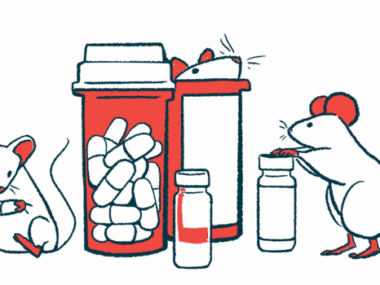ABO-102 Gene Therapy for Type A Patients Continues to Show Key and Durable Benefits in Trial, Abeona Reports
Written by |

Sanfilippo syndrome type A patients treated with the gene therapy candidate ABO-102 continue to show robust and sustained clinical improvements in a Phase 1/2 trial, its developer, Abeona Therapeutics, reports.
The company presented updated results of its open-label study (NCT02716246) at the recent American Society for Gene and Cell Therapy (ASGCT) 21st Annual Meeting in Chicago.
Sanfilippo syndrome type A is a genetic disorder caused by deficiency in an enzyme responsible for breaking down heparan sulfate, a type of sugar molecule. ABO-102 is an adeno-associated virus gene therapy that contains the missing SGSH gene, and has the potential to correct this gene defect in patients’ cells.
To date, 11 patients have been dosed with a single intravenous (directly into the blood) injection of ABO-102. Patients were divided into three groups, each receiving a different dose of ABO-102 (low, median and high). Results at 18 months post-treatment demonstrate dose- and time-dependent decreases in heparan sulfate in both urine and cerebral spinal fluid (CSF), the liquid filling the brain and spinal cord.
Reductions have been observed across multiple timepoints — 30, 90, 180, 360 and 540 days. Specifically, three patients who reached 540 days (18 months) post-treatment with ABO-102 showed a 30% reduction in urine heparan sulfate. Four patients who reached the 360-day timepoint showed continued reduction in CSF levels of heparan sulfate, a key biomarker.
Data also found that treatment reduced liver volume, which contrasts to a supportive study of the disease’s natural history. That study shows untreated patients have an average 2.2 times greater liver volume than healthy people.
“Children with [Sanfilippo syndrome type A] experience devastating quality of life consequences including neurocognitive decline, speech and mobility loss, and premature death,” Carsten Thiel, PhD, CEO at Abeona, said in a press release.
“We feel encouraged by the strong data demonstrated thus far in this trial, showing significant dose- and time-dependent improvement of the underlying disease pathology,” he added.
Treatment with ABO-102 was well-tolerated, with no therapy-related serious adverse events over 4,200 cumulative days after injection.
“The durability observed in the time- and dose-dependent responses reported today provide strong support for a whole-body treatment in this lethal disease,” Kevin M. Flanigan, MD, the trial’s principal investigator, said. “We are especially pleased to see sustained decreases in CSF heparan sulfate and liver volumes in all subjects post-injection.”
Abeona reported in February that ABO-102 stabilized or improved cognitive function at six months in the medium-dose group, and at one year in the low-dose group.
The U.S. Food and Drug Administration (FDA) granted ABO-102 orphan drug, rare pediatric disease and fast track designations, while the European Medicines Agency designated ABO-102 an orphan product.
The FDA also designated it a regenerative medicine advanced therapy (RMAT) in April to further its development.
“With the recently granted RMAT designation, we look forward to continuing our regulatory discussions to advance this promising therapy for patients,” Thiel said.




